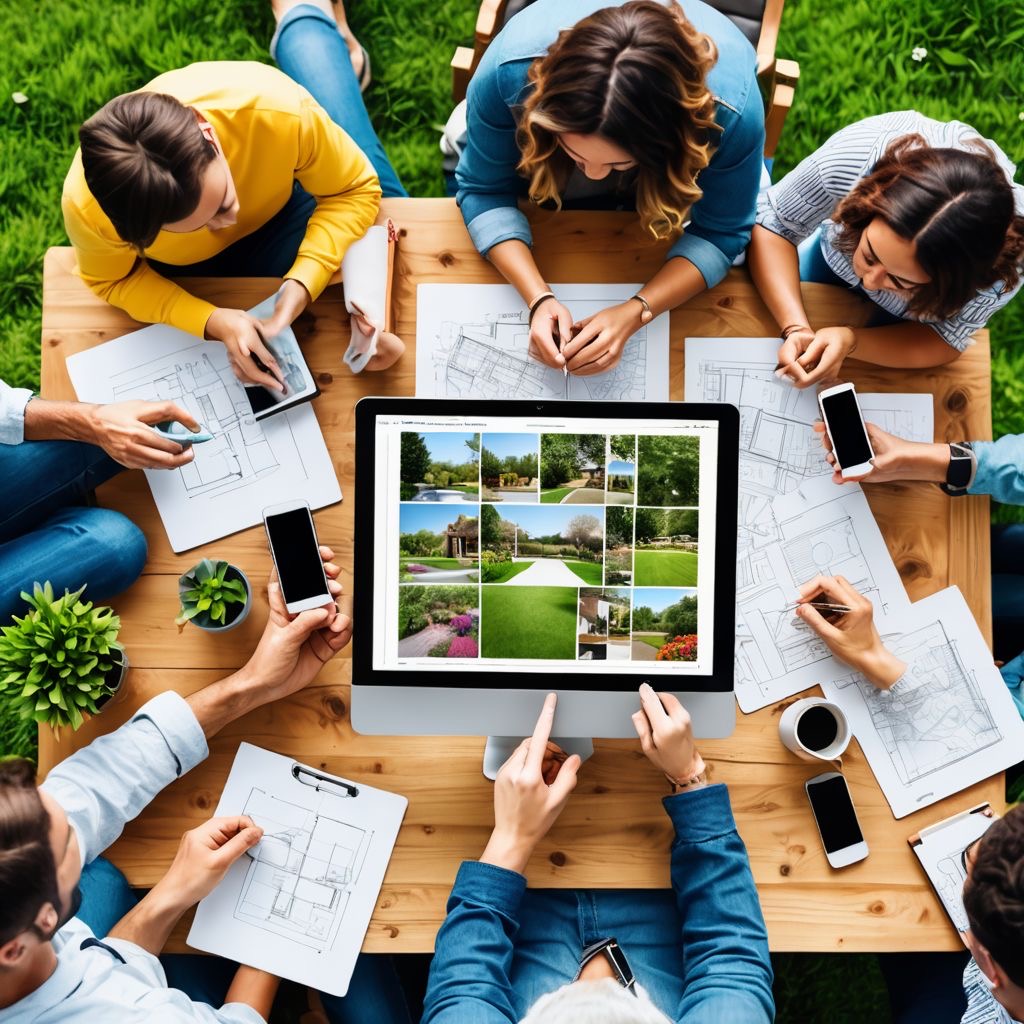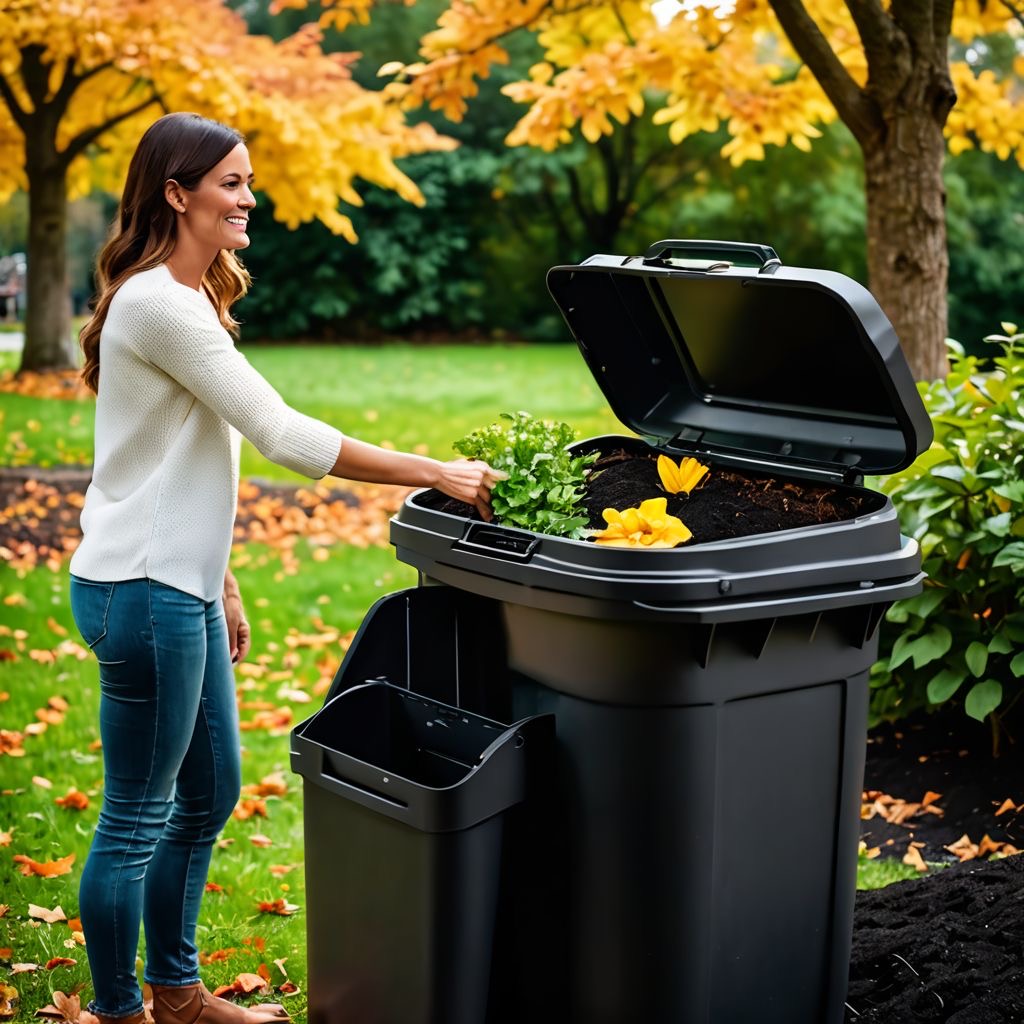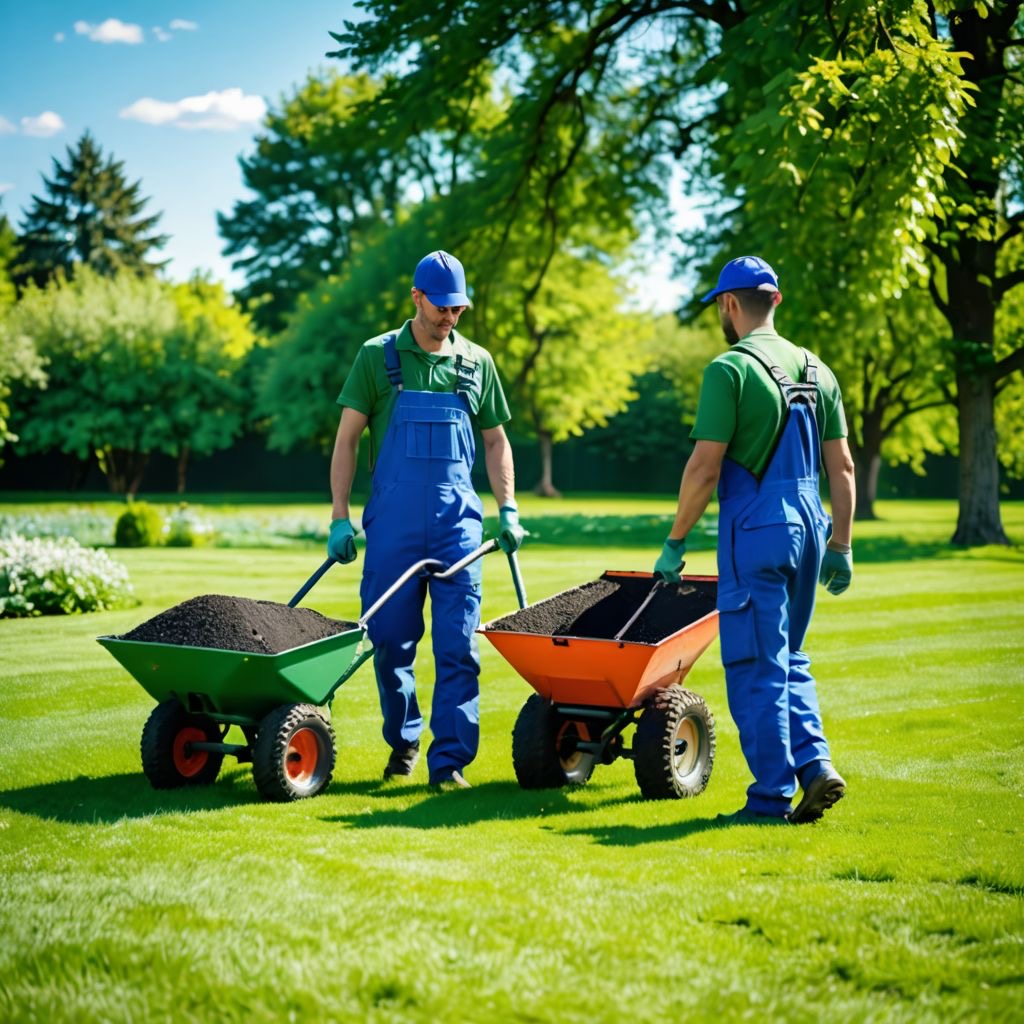Table of Contents:
1. Introduction
2. Understanding Composting
- 2.1 What is Composting?
- 2.2 The Science
3. The Connection Between Organic recycling and Greenhouse Gas Emissions
- 3.1 Waste Management and Landfills
- 3.2 Composting vs. Traditional Waste Disposal
- 3.3 The Role of Methane in Greenhouse Gas Emissions
4. Environmental Benefits
- 4.1 Soil Health and Carbon Sequestration
- 4.2 Reducing the Need for Chemical Fertilizers
- 4.3 Promoting Biodiversity
5. Practical Steps to Take to Compost at Home
- 5.1 Choosing the Right Compost Bin
- 5.2 What to Compost: Kitchen and Yard Scraps
- 5.3 Maintaining Your Compost Pile
6. Incorporating Compost into Your Landscaping Projects
- 6.1 Enhancing Your Flower Garden
- 6.2 Enhancing Your Home Garden Design
- 6.3 Including Compost in Yard Maintenance Winnipeg
7. Ideas for Engaging the Community: Education and Awareness
- 7.1 Community Composting Initiatives
- 7.2 Workshops and Education Programs
8. Conclusion
1. Introduction:
Imagine this: You're sipping your morning coffee, gazing out at your stunning rose garden, and dreaming of the satisfaction and enjoyment you get from your lush flower garden bursting with vibrant colors that would put a rainbow to shame. You’re also quietly ruminating on your commitment to the environment. How can you, with your hands planted firmly in your garden soil, do your part to combat climate change?

Enter composting (also known as organic recycling)! It's not just about recycling your kitchen scraps; it’s a powerful tool in the fight against greenhouse gas emissions. As a homeowner in Winnipeg—young, old, or somewhere in between—you have a unique opportunity to turn your organic waste into a resource that nourishes not only your plants but the planet itself.
In this blog, we’ll explore how organic recycling can dramatically reduce greenhouse gas emissions, turning your home garden into an eco-friendly beacon of sustainability. From understanding the intricacies of organic recycling to practical tips for implementing it in your yard, no stone will be left unturned. Whether you're a gardening enthusiast searching for creative garden ideas or a homeowner looking to better understand the benefits of organic recycling, this guide will provide insights and tips to help you create a greener future for your Winnipeg landscape and the environment.
Through engaging storytelling, statistics, research, and an attempt at a sprinkle of humor, we’ll reveal how a little compost can go a long way in reducing emissions. Get ready to dig in!
2. Understanding Composting:
2.1 What is it?
At its core, composting is the process of recycling organic waste, turning scraps from your kitchen and yard into nutrient-rich soil. Essentially, it’s Mother Nature’s way of repurposing what we consider waste into something that can nourish and sustain new life.
Think of it as nature’s way of making magic out of your banana peels, apple cores, and the tidbits left over after your lavish Sunday brunch. According to the Composting Council of Canada, compost enriches soil, helps retain moisture, suppresses plant diseases, and reduces the need for chemical fertilizers.

2.2 The Science behind organic recycling
Digging a little deeper, organic recycling is fueled by a fascinating process powered by millions of microorganisms, such as bacteria and fungi, which break down organic matter. This decomposition process results in humus, a rich, dark substance that increases soil fertility (and subsequently the health and happiness of your plants and flowers).
Understanding the process variables—temperature, moisture, and aeration—is vital for success. Hot composting ideally reaches temperatures of 130°F to 160°F (54°C to 71°C), which effectively kills pathogens and weed seeds. This transformative process often doesn’t require much more than a mixture of green materials (nitrogen-rich items like kitchen scraps) and brown materials (carbon-rich items like dried leaves).
Surprising every day kitchen helpers to keep pests and weeds at bay and to improve your soil.
Contact us today for your free estimate.
3. The Connection Between Organic Recycling and Greenhouse Gas Emissions:
3.1 Waste Management and Landfills

It's vital to grasp the current status of waste management, especially in the Winnipeg area. According to the City of Winnipeg, the average household generates over 1,000 kilograms of waste annually. Now, that’s a hefty number! When organic waste such as food scraps ends up in a landfill, it produces methane—a greenhouse gas more potent than carbon dioxide.
3.2 Composting vs. Traditional Waste Disposal
Research shows that more than 30% of household waste is organic material that could be composted. By consciously choosing to compost instead of just tossing scraps in the trash, we can directly affect the amount of organic waste in landfills. A compost pile is an environmentally friendly alternative, facilitating aeration and producing little to no methane. With a little effort, you can divert tons of waste from landfills annually!
3.3 The Role of Methane in Greenhouse Gas Emissions
It's essential to understand the detrimental role methane plays in our environment. The U.S. Environmental Protection Agency (EPA) states that methane is 25 times more effective at trapping heat in the atmosphere over a 100-year period compared to carbon dioxide. This explains why reducing methane emissions is such an important goal..
Contact us today for your free estimate.
4. Environmental Benefits:

4.1 Soil Health and Carbon Sequestration
Organic recycling does wonders for your topsoil and especially for the general health of your garden. When you incorporate compost into your soil, it enhances its structure, improves drainage, and increases nutrient availability.
In fact, adding compost can help sequester carbon in the soil—meaning more carbon dioxide is absorbed from the atmosphere and stored, which is excellent for our environment. A study by the Rodale Institute, a nonprofit that conducts independent agricultural research estimates that if agricultural soils alone could increase their carbon content, we could draw down more than 100% of current atmospheric carbon dioxide levels.
4.2 Reducing the Need for Chemical Fertilizers
As we strive to mitigate the effects of the use of artificial fertilizers, pesticides and herbicides and turn to quality landscaping focusing on sustainable practices—that includes healthy, chemical-free gardens—reducing the use of chemical products becomes paramount. Compost acts as a natural fertilizer, providing nutrients without the adverse side effects caused by synthetic options. It encourages beneficial microorganisms and earthworms, vital for a thriving ecosystem in your whole yard and especially your flower garden.
Wondering about achieving a weed free Winnipeg landscape?
Contact us today for your free estimate.
4.3 Promoting Biodiversity
Healthy soils support rich biodiversity, which is essential for resilient ecosystems. A diverse array of plants bolstered by compost has resilient performance in the face of pests and diseases. By composting, you provide a nurturing habitat for soil-dwelling organisms, further contributing to the health of your local environment.
Ready to chat about your landscaping goals?

Reach out by call or text to: 204-229-9789 or click here to submit your information today to arrange a “no obligation” introductory phone call. We look forward to helping you transform your yard.
5. Practical Steps to take to compost at Home:
5.1 Choosing the Right Compost Bin

So, where do you start? Choosing a compost bin. There are many options available, from traditional heaps to store-bought tumblers, or even DIY units constructed from wooden pallets or old wire fencing. As a homeowner in Winnipeg, consider the space you have available and how much waste you plan to compost.
5.2 What to Compost: Kitchen and Yard Scraps
Knowing what you can compost is key to success. A newbie might wonder if wilted lettuce counts. Spoiler alert: it does! Here’s a quick breakdown:
- Kitchen scraps: Fruits and vegetables, coffee grounds, eggshells, and grains.
- Yard waste: Grass clippings, leaves, and small branches.
- Avoid: Meat, dairy products, and oily leftovers, which can attract pests and create odors.
5.3 Maintaining Your Compost Pile
Maintenance involves turning your compost every few weeks to aerate it, maintaining moisture levels, and balancing green (nitrogen-rich) and brown (carbon-rich) materials. A robust and well-managed compost pile will lead to nutrient-rich compost in as little as three months!
6. Incorporating Compost into Your Landscaping Projects:

6.1 Enhancing Your Flower Garden
If you want to amp up the vitality of your flower bed design, adding compost will have your marigolds blooming like never before. Spread a layer of compost around your plants for a nutrient boost. This helps plants establish deep roots and encourages the vibrant growth that will have your neighbors complimenting your gardening skills.
Contact us today for your free estimate.
6.2 Enhancing Your Home Garden Design
Got an old garden design that needs a facelift? A few buckets of compost can reinvent your soil, making it more productive and increasing your yield. Mix compost into existing garden beds before planting to create fertile ground for whatever seeds you’re working with—whether they're vegetables, herbs, or flowers.
6.3 Including Compost in Yard Maintenance Winnipeg


Many yard maintenance companies Winnipeg homeowners have come to trust and rely on, regularly use compost as a top dressing across your lawn or on garden beds to replenish nutrients. This method not only supports plant health but also enhances the structure of soil, which can help manage water retention and drainage.
Contact us today for your free estimate.
7. Ideas for Engaging the Community: Education and Awareness:
7.1 Community Initiatives
As Winnipeg homeowners embrace the benefits of being a composter, community initiatives can elevate awareness of the benefits of these practices. Local workshops on compost practices, compost giveaways, and community gardens can cultivate greater awareness and engagement.
7.2 Workshops and Education Programs
Host or attend workshops focused on compost techniques, such as how to effectively build a compost bin, what materials to include (and avoid), and the myriad ways compost can enhance the health of your landscape . Local colleges, botanical gardens, or community centers often provide resources and spaces for these events.
8. Conclusion:
In conclusion, composting is so much more than just a way to reduce waste—it’s a vital tool in reducing greenhouse gas emissions. For Winnipeg homeowners and commercial property managers alike, understanding the power of composting can lead to a wealth of environmental benefits. By embracing composting, we can improve not only our own home gardens and landscapes in general but at the same time, contribute to a more sustainable future for everyone.
From enhancing soil health to providing a natural alternative to chemical fertilizers, composting is at the heart of eco-conscious gardening and landscaping practices. So, whether you’re tending to your beloved flower garden, working on transforming your home garden design, or embarking on a landscaping project, consider implementing composting practices. Your plants—and the planet—will thank you!
As you embark on your composting adventure, remember: every bit helps. Even the smallest actions contribute to a more extensive movement toward sustainability. Now get that compost bin rolling, and let’s start reducing those greenhouse gas emissions!
Contact us today for your free estimate.
Don't miss out! Click here to subscribe today and get the latest blog posts delivered straight to your inbox.




